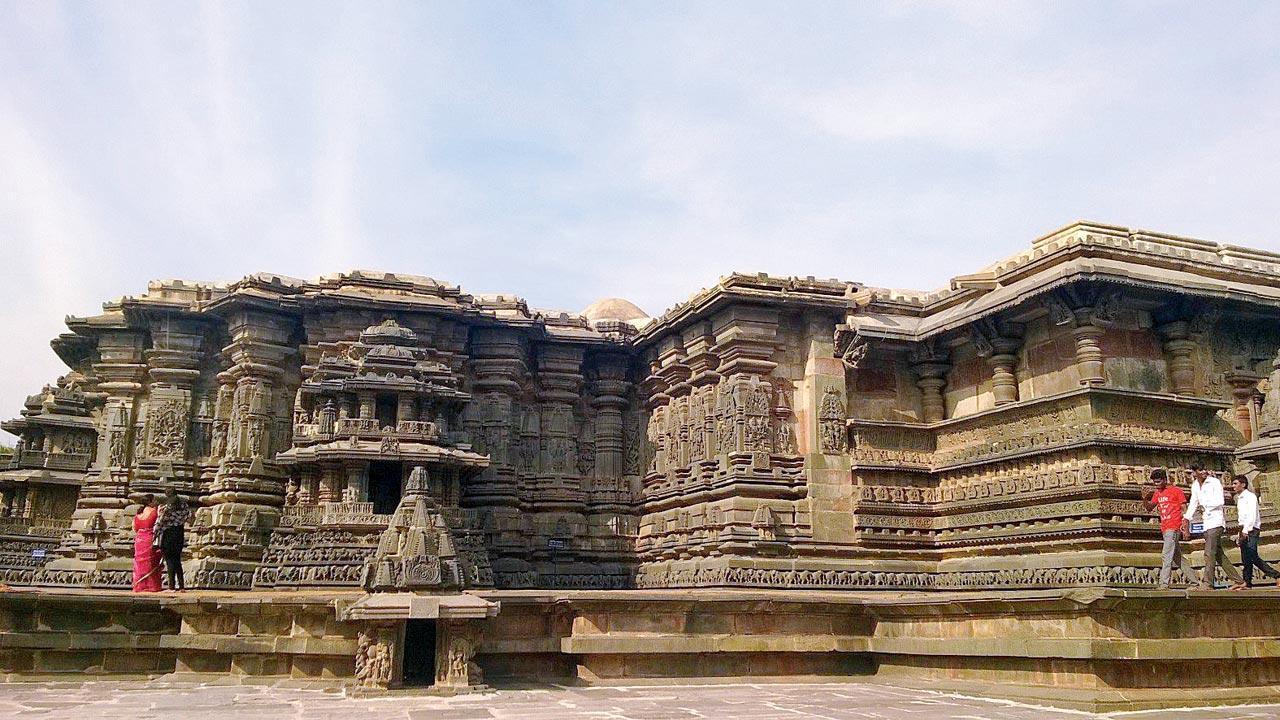Home / Sunday-mid-day / / Article /
Why you should visit the Hoysala temples, now on the UNESCO World Heritage List
Updated On: 01 October, 2023 09:03 AM IST | Mumbai | Fiona Fernandez
Here’s why the architecturally superior ensemble in south-west Karnataka, and India’s 42nd UNESCO World Heritage Site, is worth your while

The Hoysalas used soapstone to carve their temples including the Channakeshava Temple in Belur since it was supposed to be ideal for intricate, detailed carvings
Madame, these stone temples tell stories,” Chenappa MS, the on-site guide at Belur, had said. His words came racing back to this writer’s mind after we learned that the Sacred Ensembles of the Hoysalas —the temples of Channakeshava temple in Belur, the Hoysalesvara Temple in Halebidu, and the Keshava Temple in Somanathapura, were officially inscribed as UNESCO’S World Heritage Site during the 45th session of the World Heritage Committee in Riyadh, Saudi Arabia, on September 18. Belur and Halebidu’s temples were on the tentative list since 2014; all three were officially nominated by the Centre as India’s entry last year.
If these destinations have pole-vaulted their way into your travel bucket list, we have good news, especially if you’re a time-strapped traveller. The two sites that we had visited in 2018 (Belur and Halebidu) and a third, smaller site, Belavadi, which isn’t part of the inscription, can be covered in a day. Chikmagalur is the ideal starting point for this trail.



